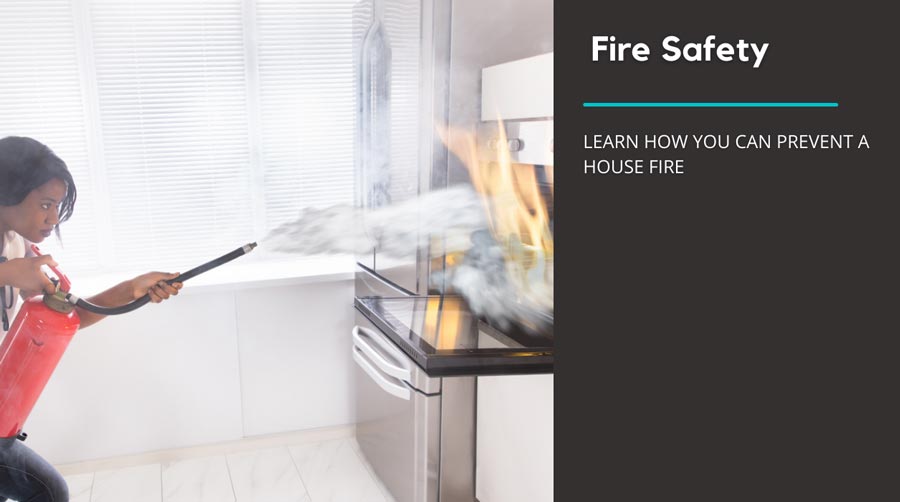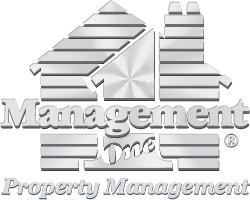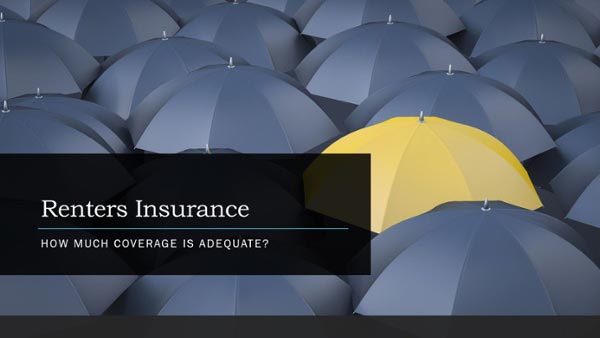
Fire Safety: Learn How You can Prevent a House Fire
If only Smokey the Bear hung out in people’s homes during fire prevention month when he’s not chilling in the forest, a lot of mayhem could be avoided. On the other hand, a bear in the house isn’t that great an idea either. That, and a single month for fire prevention? Seem, oh, I don’t know, 11 months shy?!?
It’s Everywhere, All the Time
Whether you own a property, several properties, land, or rent a property, fire awareness, and fire prevention, ought to be right about the top of your list of concerns. Think about it, the news is rife with natural disasters all the time, all over the world, yet we, as humans, always see these things as “them” versus us. That simply is not true. It CAN be you.
As a topic
Now, fire prevention is a rather dry topic. You rarely see folks gathered around in a burger joint discussing this topic in earnest. Firefighters, okay, you got me there, but not regular folks. Ever. As a matter of fact, it would not be 'front of mind' for me, either, as I’m a relatively normal person. The jury's still out on that, by the way. However, working in the insurance field for some time I got to see and learn that sometimes bad things happen, and an ounce of prevention, well, you know the rest.
It Starts Outside
I’m going to have to read up the on some refreshers here, my old insurance stuff, as I’m rusty on this, but I can pass some good info here anyway. Rules of thumb: if you have 20,000 or more square feet of brush near your home, you have a serious fire hazard on your hands. That’s roughly the size of a football field, including the end zones. Brush within 500 feet or less of your domicile? There’s an issue there. Fire hydrant over 500 feet from your house? Dry hydrant? No visible address on your house? Wood stacked against your house, brush in your back yard? All of these are issues. Oh, by the way, a dry hydrant is an unpressurized pipe that sticks out of the ground and taps into a water supply, like a nearby body of water, which the water must be sucked out of to be used, versus a pressurized fire hydrant. They are more common than you may think.
But wait, there’s more
Hey, lots of people have chimineas or fire pits, right? If you have one, your insurance rates are going to go up. They are a fire hazard.
Also, not pulling a permit when altering your property can have devastating consequences. We’ll touch on this some later.
Now let’s go inside
Most homes are built to a specific building code that is designed for safety, uniformity, as well as compliance with local laws. Building inspectors from the local government serve a purpose. They are trained to spot deficiencies in the building process, and this includes all of the things that kill you, like fire.
First, let’s touch on some commonsense items.
Should you smell natural gas, shut off the gas at your gas meter and call the gas company, stat! Don’t bother hunting the leak down, let a trained professional handle this.
Your smoke detectors are chirping, what to do? Erm, change the batteries? Am I being facetious? Nope. Let me explain.
Storytime:
My granddaughter has a lot of friends, but there are two she’s talking with all the time. One life down the block in a rental, (not one of ours), and every time I go there to retrieve her (Dinner time, time to come home!) I can hear the smoke detectors chirping inside. All of them. All the time. I have talked to the father, but he does not seem to think it’s of any importance.
The other friend she walks to school with. Each morning they get on the phone and talk about what they are wearing and stuff like that. And, each morning, my dogs cower. My dogs are scared to death of chirping smoke alarms. I have some weird dogs. Anyway, since both girls are on speakerphone, my dogs can hear a chirping smoke alarm at the other girl’s house. On the way home tonight, I’m picking up a pack of 9-volt batteries for my granddaughter to give to them.
Leading the Horse to Water but
However, I cannot make them put the batteries in, but at least they have that option. You see, in both cases, the smoke alarms are house-powered and interconnected, so these folks think all is well, despite the chirping. So, what happens in an electrical fire? Usually, the electrical panel fails, and those battery backup smoke detectors are running only off the batteries. But if the batteries are dead…
By the way, each hallway, meaning the downstairs and upstairs hall, and each bedroom ought to have a smoke detector. Nowadays they make smoke detectors that have 10-year batteries installed. If your smoke detectors are strictly house powered, old, painted over, damaged, do not sound, get rid of them, and upgrade to the new types!
Clothes Dryers Are Killers
That load of wash you're sticking into the dryer does not give a hoot nor holler about fire prevention. It's just a dumb, heavy machine, not like you, you're smart. You regularly clean the lint trap before each load, and yearly (and no less than every three years) clean out the duct that runs to the outside, right? Oh, you don’t? You’re not the only one.
Cleaning the lint trap before every load is imperative! Equally, so is the regular cleaning of the ductwork. My brother-in-law got the most expensive free dryer ever a few years ago. On the first day of having it, he started a batch drying before going out to dinner. That dryer burnt down half the house.
Home depot has products that will help you clean that ductwork as part of your fire prevention routine!
Santa’s Main Entry
When was the last time you cleaned the inside of your wood-burning fireplace chimney? Three years or more? Call a chimney sweep, you know, like the guy from Mary Poppins. You may think chimney sweeps are outdated and long gone, but you would be mistaken. They are still around and serve an important function. That creosote buildup going up your fireplace can ignite! What Is Creosote?
That Pot Belly in the Corner
Wood-burning stoves are an anachronism. Unless you live in the mountains, or out in the sticks, you may have never even seen one up close and personal. They provide a lot of heat, and they have their own special charm. And they are dangerous.
A good rule of thumb is to keep said stove 36 inches or more away from anything combustible. Almost all wood-burning stoves made since the 1970s have data plates or stickers that inform you, the end-user, the proper distances for each model. If you’re considering buying one, let a qualified and licensed/insured professional install it. Said pro would make sure the clearances are correct and will install a proper sleeve in the ceiling or wall where the vent pipe will exit. Also, you want to make sure there is nonflammable flooring beneath the until extending to lea than 18 inches out from the fire door. Again, local ordinances vary, so check and do it right once.
That Big Beautiful Flat Spot
This happens all the time: You take something into the garage to store, and “dang it, where am I going to set this down at?” You spot that area right near the water heater or furnace; it’s open, it’s flat, bingo! Hold on there, Charlie! (Sorry if your name is Charlie, by the way). Keep at least 36 inches around the water heater and furnace free of any combustible items! 7% of household fires start right here, and 4% of household fire deaths.
Now You’re Cooking
If you’re leaving the kitchen for any length of time, turn your kitchen burners off! I have walked out of the kitchen many times and gotten distracted by something and burned the life out of dinner.
Also, if you have a grease fire, do NOT try to out it out with water! I almost did this once and was lucky not to have burned down the house. My wife grabbed my shoulder, yelling something to the effect of “Hey, stupid, what are doing!!?!” She grabbed some flour and doused the flames. Yes, the cleanup was a mess, but it would have been worse had I did that thing. Grease fires happen. Don't make it worse!
The Match Game
My son, he's really something. I'm very proud of how he turned out. It was dicey there for a bit. He LOVED to play with matches when he was little. He lit a recliner on fire once, and a large stack of newspapers in the side of the garage another time.
Do yourself a favor and put matches away somewhere high and safe. You can take fire prevention seriously, but kids, they don't, not so much. I was that little goofball who’d a light paper on fire with a magnifying glass.
Heat That Space
But use the furnace the house came with. Space heaters are big business, and they are dangerous! As an insurance inspector, if I found a space heater in a home, and I was required to look, instant fail. Either the coverage rates would skyrocket, but more often than not, the policy was at risk for cancelation. "But mine shuts off if it's tipped over!" Well, it's designed to, but that does not mean it will every time.
The Panel
This tidbit is the most expensive fix. Electricity is no joke. It will shock you to death, but it can also cause fires! Here's something people rarely think about: If you have ever muttered to yourself "Dagnabit, the breaker clicked off again!", you're probably asking that particular circuit to provide more juice than it can provide. You see, when a breaker is new, it is rated at a certain amperage. That 15-amp breaker, when it's new, permits 15 amps to pass to the lines in the home, but over time that amperage drops. Corrosion, wear, and that bane of all us now living, time takes its toll. On the other hand, if you're plugging in an appliance that draws, say, 20 amps, into a line rated at 15 amps, you're asking for problems.
What happens at the wires in the walls is called resistance, and resistance creates heat. Enough and the wire will melt, and can also, potentially, catch fire. Check your appliance first; its amp draw should be on its plate or sticker.
More on the Panel
Your house, if built before 1980 or so (and I have seen this in as later as 1990 builds), may have a dangerous electrical panel. For example, Federal Pacific panels tend to nut trip breakers when overloaded, and fires result. Zinsco panels tend to have their breakers melt when overloaded. Zinsco panels can be labeled simply Zinsco, Sylvania Zinsco, or GTE Sylvania Zinsco. Both of these dangerous panels are very distinctive looking. However, I have seen folks remove the labeling, even going so far as to fabricate custom door-covers so that, unless you open the cover, you would not know you're dealing with a naughty box.
If you're in doubt, Google the above product names and you'll see, 1) why I bring this up, and 2) images that will show you what to look for. You'll spend 2 to 4 grand to replace the panel, but aren't you and your family worth at least that?
Permits, as Promised
Okay, see it was not an empty promise. Building permits are important for several reasons. For starters, if significantly altering your house, it's the law. Many people skirt this though, and when it comes time to sell your house, you may not qualify for a buyer using FHA financing. That can stall, or even kill your sale. But here is a more compelling reason:
If the code enforcement-building inspector-permit person signs off on it, you're pretty much golden. That professional eye is detail-oriented. What does that have to do with fire prevention? Well, they know that aluminum Romex (a type of wiring) is a no-no. They know that the Zinsco electrical box your handyman scored at a garage sale is a no-no. They know the proper tolerances of specific items.
Don't be a permit pariah.
The Rap Wrap
There are so many other things I can list, but my best advice? Use common sense. Use licensed/insured contractors always. Always err on the side of caution. Do it right.
As Smokey the Bear might say, only you can prevent (forest) fires. I would add to that; fire prevention is everyone's job.












